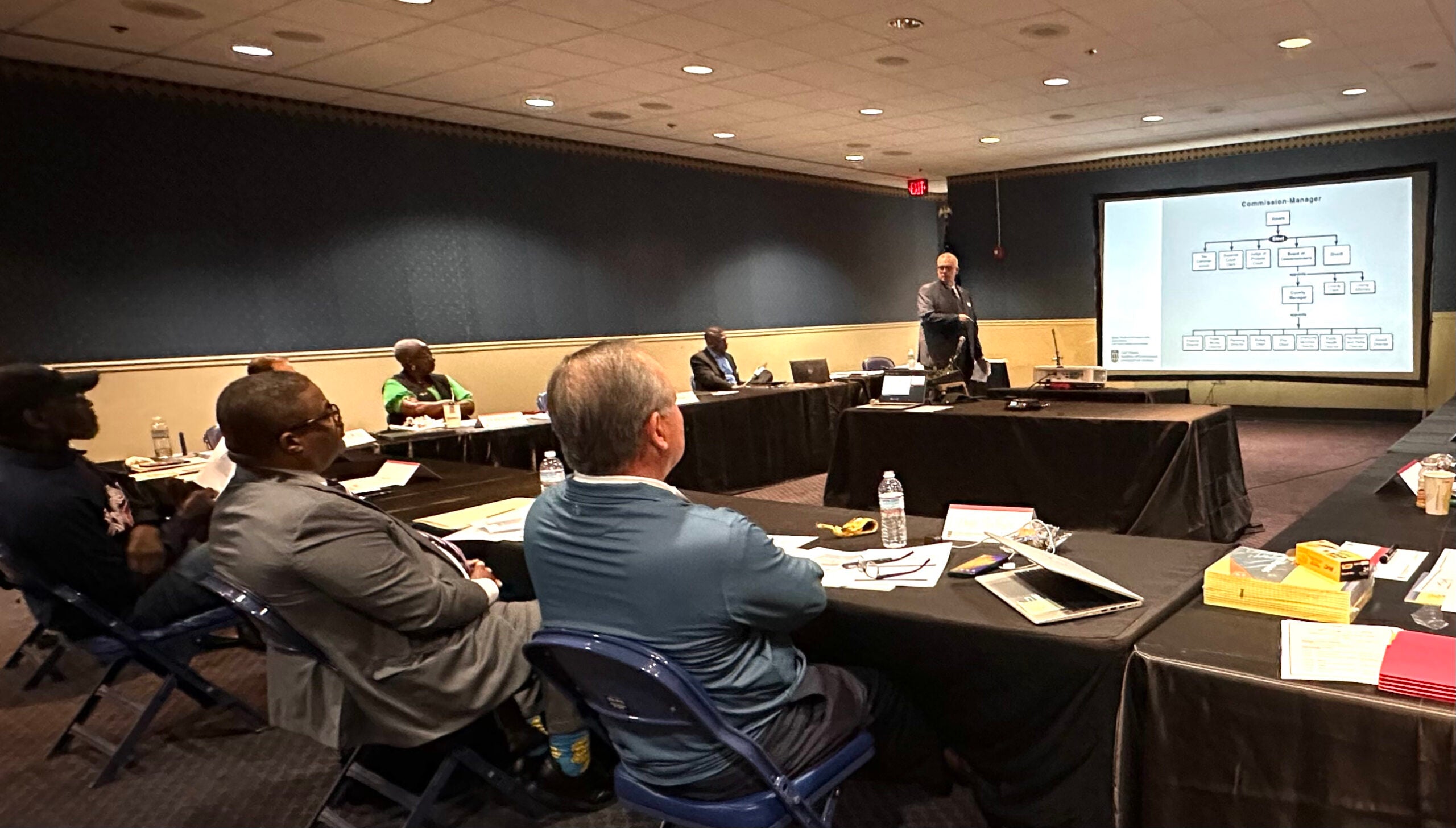Giving the administrator the power to hire and fire could replace political whims with sound decisions in Augusta’s operations. But some on the Augusta Commission say it wouldn’t keep commissioners from meddling in city business.
Commissioners spent Friday with two facilitators from the Carl Vinson Institute of Government at the University of Georgia who led them through the pros and cons of giving up direct power over department heads. They also heard the Augusta Metro Chamber of Commerce’s position that it needs to be done.
Facilitator Hardin Watkins had first-hand experience, having served as administrator in Suwanee, Ga., as it transitioned to a city manager.
The key difference between the two positions was the manager’s ability to hire and fire department heads, Watkins said. Most Augusta department heads report directly to the commission, and the administrator is limited to making recommendations.
A professional manager will “focus on sound principles versus political whims” while reporting directly to the commission, he said. They are “nonpartisan, and should not be influenced by political considerations.”
That can lead to management decisions that sometimes differ with the prevailing political climate and even the abuse of power, making performance evaluations important, he said.
Unambiguous direction is a better structure for department heads and results in more efficient and effective operations, but can sometimes take longer, if all actions have to go through the manager, he said.
Elected officials may have trouble giving up their grip on city affairs, especially those in their districts. They “may not be comfortable having to go through the manager in order to get something done,” he said.
Other benefits are in budgeting. “Departments are forced to submit budget requests that are managerially sound, rather than based on their ability to play politics,” Watkins said.
Mayor Garnett Johnson said department heads can undermine the administrator because they know they have six commission votes of support.
Johnson said the city’s Consolidation Act, which created the strong-commission form of government, is “a living document” that hasn’t been reviewed or changed since consolidation.
At least four commissioners – Sean Frantom, Wayne Guilfoyle, Brandon Garrett and Catherine Smith McKnight – said they agreed with giving the city’s top executive the ability to hire and fire department heads.
“It takes the heat off us. It takes the politics off us,” McKnight said.
“It’s hard to find good directors because who wants to come work for 11 commissioners,” said Garrett, referring the mayor and 10 commissioners.
Frantom said he thought if the change went on the ballot, voters would approve it. “People believe this government has not functioned the way it should function,” he said.
Commissioner Bobby Williams said even if the structure changes, certain commissioners will attempt to control the manager, while the tendency to meddle is strong.
“It does not even get back to directors. You’ve got workers calling the commissioners to try to control what’s going on,” he said. “It goes right by the administrator sometimes.”
Commissioner Jordan Johnson noted that the current lack of centralized authority stems from Augusta’s last mayor before consolidation. “He bankrupted the government,” he said. “Consolidation saved the city.”
Johnson said commissioners were being disingenuous about their role in city affairs.
“I’m willing to have this conversation, if we’re going to be honest about it,” he said. “Our role is to manage the government. If it’s not efficient or effective, we need to get out of the way.”
Speaking to the group, Metro Chamber President Sue Parr said the chamber has studied the matter for some time and noted the frequent turnover of administrators and other city staff.
The chamber’s 36-member board supports taking hiring and firing of department heads away from the commission, she said.
“For decades, the Augusta-Richmond County Commission has operated within an organizational structure where the commission itself, a political body, maintains a high level of direct management and oversight over department directors,” she said in a January letter to the commission redistributed Friday.
“This dynamic creates significant difficulty in the management of operations and services where clear lines of accountability do not exist, and consumes the time of officials who are elected to govern, rather than manage,” it said. and noted the high turnover of Augusta administrators and employees in general.
After the retreat lunch, commissioners moved on to the topic of attempting to revise the job description for the administrator, with the facilitators’ help. The commission hasn’t had a permanent administrator since the resignation of Odie Donald in February 2022.
Central Services Director Takiyah Douse, who serves as interim administrator, did not attend the retreat Friday.












